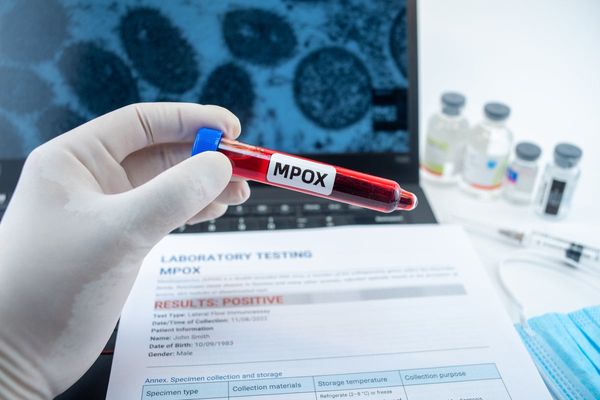Wales' rules around self-isolation are changing, First Minister Mark Drakeford has announced.
From Friday, December 31, the length of time people in Wales have to self-isolate if they test positive for Covid will change with the 10-day isolation period cut to seven if a person has a negative lateral flow on days six and seven.
The change covers existing cases of people already isolating.
Read more: The staggering difference in Covid rates in every part of Wales now compared to one year ago
That brings Wales into line with England and it is hoped it will ease pressures on the health service and businesses who are reporting high numbers of staff absences as people self-isolate.
Six days ago Wales' health minister Eluned Morgan said the Welsh Government would not follow England at that stage as she wanted a more "risk-averse" approach however she said the change would come into place in Wales from January 5.
"It's a very finely-balanced judgement and we are not in the same situation as they are in England in terms of where we're at on the curve," she said. "We're not going to be following that advice for the time being."
Scotland has a 10-day isolation period that remains in place.
Speaking about plans to change the isolation period, Mr Drakeford said: "The health minister published a written statement on December 23 about reducing the self-isolation period from 10 to seven days, on the basis of two negative lateral flow tests taken on days six and seven, from January 5. We will introduce this change tomorrow (December 31).
"This means people who have tested positive for Covid-19 must self isolate for seven days. On days six and seven of their self-isolation period they should take lateral flow tests and if these tests – taken 24 hours apart – are positive they should continue to self-isolate.
"We are bringing the change forward because the balance of harms has changed and the rising number of cases risks our ability to deliver critical services."
Why has the advice changed?
The changes to self-isolation rules are intended to ease pressures on businesses and the health service who are reporting a high number of absences as people self-isolate.
At one Welsh health board, Betsi Cadwaladr, more than 500 staff have tested positive for coronavirus in the last seven days alone.
The board is having to cope with this on top of the number of people off sick with other illnesses. They are relying on staff taking on extra shifts or overtime and using temporary workers to plug the gap.
Earlier this week, Transport for Wales urged people not to travel as "staff sickness" has hit services.
Before 10am on Tuesday, December 28, 65 services were listed as cancelled on the Transport for Wales (TfW) website.
Several businesses have also announced they have had to close due to staff shortages. A full list can be found here.
Are the new rules safe?
The Welsh Health Minister published a written statement on 23 December about reducing the self-isolation period from 10 to seven days, on the basis of two negative lateral flow tests taken on days six and seven, from 5 January.
The change will be introduced on December 31.
This means people who have tested positive for Covid-19 must self-isolate for seven days. On days six and seven of their self-isolation period, they should take lateral flow tests and if these tests – taken 24 hours apart – are positive, they should continue to self-isolate until their original 10 day isolation period is over.
Since December 22, people in England who test positive for covid can cut their self-isolation period from 10 days to seven if they have a negative lateral flow test on day six and day seven and no high temperature.
If people in either country continue to receive positive lateral flow tests, they must remain in isolation until the end of their original 10-day period.
Analysis by the UK Health Security Agency (UKHSA) suggests that a seven-day isolation period alongside two negative lateral flow test results has nearly the same protective effect as a 10-day isolation period without lateral flow testing.
Dr Jenny Harries, Chief Executive of UKHSA, said: "COVID-19 is spreading quickly among the population and the pace at which Omicron is transmitting may pose a risk to running our critical public services during winter. This new guidance will help break chains of transmission and minimise the impact on lives and livelihoods. It is crucial that people carry out their LFD tests as the new guidance states and continue to follow public health advice.
"As always, we urge everyone who is eligible to get their booster jab without delay, wear a mask in crowded spaces, on public transport and in shops, wash their hands regularly and ventilate rooms well. If you have any COVID-19 symptoms stay at home and get a PCR test as soon as possible."
What do experts say?
Pressure has been rising on the UK Government to consider further cutting self-isolation to five days, with some experts tentatively backing the idea. It has also gathered momentum within the hospitality industry, but they still believe it is the job of scientists to ascertain the move’s safety.
Chris Hopson, the chief executive of NHS Providers wrote on Twitter: “Covid-19 keeps throwing up policy decisions requiring difficult judgments between competing objectives. Reducing Covid isolation from seven days to five is another one of these.
“If staff absence rates and care quality/patient safety risk rise, pressure for a change to the isolation period will, inevitably, rise as well,” he said.
However, Hopson noted that a shift to a shorter self-isolation period could be problematic if it increases the risk of hospital-acquired Covid infections. And if people do remain infectious after five days of self-isolation, there could be a rise in community infection rates – a concern given the uncertain impact of Omicron on older populations.
Another issue is that there have been disruptions in the availability of lateral flow and PCR tests.
“A policy based on people needing negative PCR or lateral flow test results to exit isolation requires rapid, reliable and widespread access to those tests. This is not, currently, consistently the case,” he wrote.
Dr Jenny Harries, Chief Executive of UKHSA, said: "COVID-19 is spreading quickly among the population and the pace at which Omicron is transmitting may pose a risk to running our critical public services during winter. This new guidance will help break chains of transmission and minimise the impact on lives and livelihoods. It is crucial that people carry out their LFD tests as the new guidance states and continue to follow public health advice.
"As always, we urge everyone who is eligible to get their booster jab without delay, wear a mask in crowded spaces, on public transport and in shops, wash your hands regularly and ventilate rooms well. If you have any COVID-19 symptoms stay at home and get a PCR test as soon as possible."
To get the latest WalesOnline newsletters emailed to you directly for free click here.







